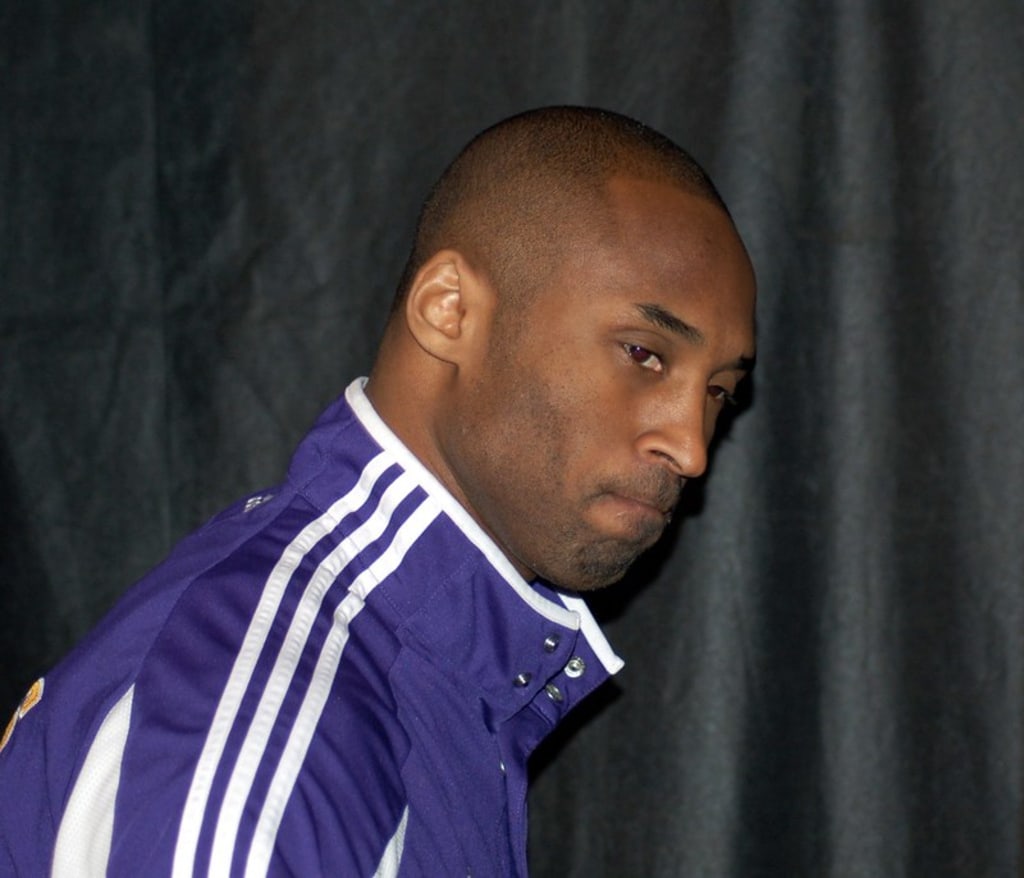Lament for Kobe Bean Bryant
With the fall of a great man, some terms need to be re-examined.

Grown folks don’t usually cry over nothing. With the passing of the Lakers legend Kobe Bryant, the tears flowed. The other seven passengers on that helicopter, including his daughter Gianna, had lives, too. As individuals, they must be acknowledged for their time on earth as well. But they didn’t win five championships. They didn’t have a career high and National Basketball Association second best 81-point game. They didn’t earn the Most Valuable Player award for the league. Bryant did all of these things and more. His dedication to his craft and undying spirit of competition propelled him to the greatest of heights. Even in his lowest times and hours of darkness, a light appeared that guided Bryant along a path of true, earthly righteousness.
What makes a man turn into greatness? What qualities, attributes, and characteristics must be forged into a man to exhibit his talents at the supreme level? With all of the ways that he could’ve stopped and said, “this is too much” he instead proclaimed, “I can do this.” For every way that he could’ve spent his days on the court just lallygagging and putting up mediocre statistics, Mr. Bryant saw past all of that and made it his business to achieve excellence. Just as his nickname Mamba implied, he displayed the ferocity of a man who could strike with venomous precision. And he blew open the terrible ideal of not passing the ball. While some may have called him the conventional term, “selfish” he actually embodied the Ayn Rand definition of rational self-interest. And the statisticians recorded it. Kobe won scoring titles which means that he held the ball to himself. He often took the last shot to win the game. While we chant “don’t be selfish” and “pass the ball,” isn’t it “selfish” and evil for the handler who receives the ball to score? How many times must a ball be passed before it should be shot? Bryant remained unfazed by accusations of failing to pass the ball more. He stood steadfast in knowing that his shooting game, fast and intense, would carry his beloved Purple and Gold to the promised land on the aforementioned five occasions.
Work ethic passed down from his father Joe “Jellybean” Bryant thrust the basketball megastar onto the world stage. While building up his stamina, strengthening his biceps, running to contend with the thirty plus minutes that he would be on the court, Kobe never stopped. He put in the work so that he could reap the financial benefits, yes, but there remained an underlying story to his whole approach. He found solace in attempting to always do more. To push himself, he stayed hours in the gym and focused on developing his skills. As injuries later in his career like his torn Achilles tendon sidelined him, Mamba would rise again in another stunning way after retirement.
As the first American professional athlete and first African-American to win an Oscar® for Best Animated Short Film, Mr. Bryant showed signs of a man transitioning into the next phase of his life. And he didn’t stop there. With his love, his life, his four little girls and wife, Kobe wanted to foster a sense that they too can be great in their own ways. With the late Gianna ‘Gigi” Bryant, the All-Star basketball phenomenon instilled in her the soul of an individualist. That doesn’t mean that you don’t trade with your teammates. It means the exact opposite. If you don't have a clear shot and your teammate does, let them handle the ball and take the shot. It would be irrational to just shoot every basket by yourself, neglecting your team and forsaking the opportunity to win. Because that is the goal of any sportsperson. It is not the narcissistic volume shooter who feels that they should have possession of the ball at all times. Kobe knew this. And it reflected in Gianna’s interrupted career.
But that’s where Kobe’s mind stayed. With the woman and girls in his life, he inspired the now famous hashtag #GirlDad. What is so amazing is that he became an all-around human being. His professional and personal lives didn’t clash, they integrated. Kobe never lost sight of prolonging the idea that sports is just a metaphor for life. While we see multi-millionaires run up and down fields and courts and skate on the ice and drive on speedways, we might think that they’re just overgrown adolescents with too much money to spend and not enough time to do “real work.” But what is this “real work”? Don’t the professional leagues provide thousands of jobs? Aren’t the capitalists that supply the funds to these wealthy individuals heroes for pumping in billions of dollars so that we can experience the spectacle of sport? Kobe Bryant knew that with the fusing of on-court prowess and off-court nobility, he never had to worry about whether his fortune and fame compromised with the man that wore the jerseys 8 and 24.
About the Creator
Skyler Saunders
Cash App: $SkylerSaunders1
PayPal: paypal.me/SkylerSaunders
Join Skyler’s 100 Club by contributing $100 a month to the page. Thank you!






Comments
There are no comments for this story
Be the first to respond and start the conversation.